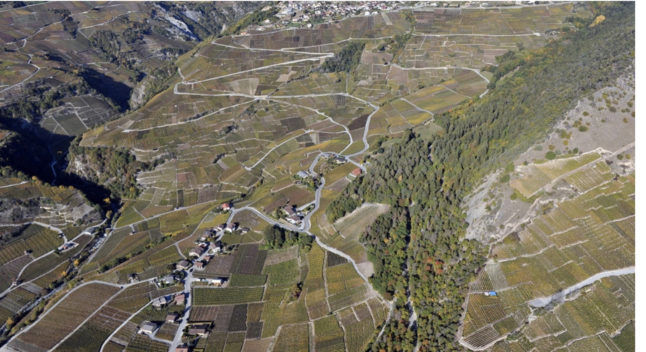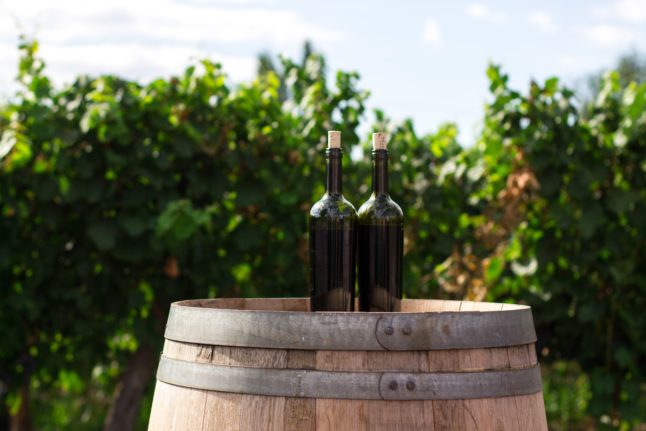Earlier in Spring, news broke of a new scheme where Swiss vineyards were available for just one franc.
As with similar stories offering one franc plots of land or houses, the news spread far and wide – which of course was the point – while some eventually became disappointed.
READ MORE: Gambarogno: The latest Swiss village to sell houses for one franc
While it’s likely to cost you a good deal more than one franc, if owning a Swiss vineyard (or at least part of it) is on your bucket list, you now have an opportunity to do so.
Why are Swiss vineyards going cheap?
With nearly 5,000 hectares of vineyards and 60 different grape varieties, Valais is Switzerland’s largest wine-growing region.
Unfortunately, 20 percent of the canton’s vines are abandoned and municipalities must uproot them because they can’t find people willing to cultivate them.
A case in point is the community of Savièse, nestled in a picturesque Alpine valley. About 120 plots — four to five hectares — of its vineyards were abandoned by their owners and therefore not harvested last year, as the commune can’t find people to do the work.
This is a serious case of neglect because “when a vine is not pruned, there is a period of one year to uproot it. Otherwise, there is a risk of spreading disease”, according to Savièse’s mayor, Sylvain Dumoulin.
“There are some vines where we need to do this now, and I fear the number will increase in the future”, he added.
How much does a plot cost?
In order to protect its winemaking traditions in general and abandoned plots in particular, the municipality has launched a new vines-saving project which includes a “stock exchange” of sorts for the sale and purchase of abandoned parcels.
READ MORE: EXPLAINED: How to drink wine like a Swiss
Dumoulin didn’t reveal the cost of a plot of vineyard, as it depends on its location, condition and other factors.
Unfortunately, while you may have seen articles reporting that parcels are being sold for “a symbolic one franc”, this is more than likely a marketing ploy to attract attention than a realistic price.

Savièse’s vineyards. Screenshot, Savièse.ch
“The main long-term objective is to encourage the grouping of plots and thus the rationalisation of the exploitation of these parcels”, Dumoulin told The Local.
He added that currently the project is “exclusively accessible for people who already own vineyards. But from July it will be open to anyone with an interest in purchasing vineyard areas”.
From then on, “anyone can download the application to find plots of vines for sale and to make their owner a price proposal”.
The app, called “Vignoble Savièse” can be purchased in Apple or Google stores.
One example of such a gimmick was the Ticino town of Gambarogno, located on the shores of Lake Maggiore, which offered houses for one franc.
‘Impossible’: Why Switzerland’s one franc homes are too good to be true
As The Local reported, “the news – along with pictures of the Ticino countryside and the lake itself – spread across the globe, with people inside and outside of Switzerland letting themselves dream”.
However, the “rustic houses with the view of the lake” turned out to be nothing more than ruins, with no roofs, windows, electricity or running water, situated in remote locations — about an hour’s walk from the nearest village.



 Please whitelist us to continue reading.
Please whitelist us to continue reading.
Member comments